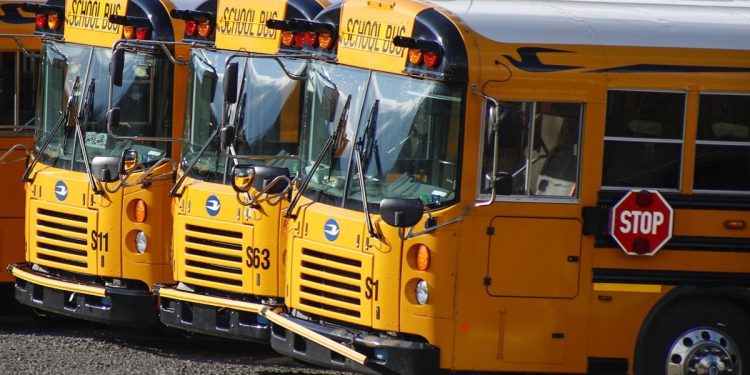By Anthony Hennen | The Center Square
(The Center Square) – Officials from the Department of Education testified on Thursday about learning loss for students, the barriers to recruiting teachers, and the need for more funding to reach parity among schools across Pennsylvania.
Gov. Tom Wolf’s proposed budget would boost state funding for education by $1.6 billion, a 22% increase from last year’s spending.
“We are very supportive of the governor’s budget,” said Sen. Vincent Hughes, D-Philadelphia. “We think it needs to be more aggressive, but it’s pretty aggressive. I’m very concerned that we’re leaving a hole on the issue of school construction.”
Hughes noted that too many school buildings across Pennsylvania were toxic, lead-infested, broken, and were “falling apart.”
“It sets up an extremely monumental challenge for an educator,” Secretary Noe Ortega said.
Another monumental challenge for school districts has been recruiting teachers. Hughes noted the need to increase teacher diversity, and Ortega detailed the problems with teacher recruitment.
“It’s a challenge to pull in more educators into the profession,” Ortega said. “We have some ideas that we put in place, programs to recruit and promote the profession.”
Loan forgiveness could boost the number of teachers, Ortega said, as well as “work with the General Assembly to remove some obstacles as they relate to people going into the profession.” Over-assessing teachers and unnecessary requirements to get a teaching license can deter potential educators, he noted.
“The pipeline is of utmost importance when we think about the future,” Ortega said.
Sen. Scott Martin, R-Strasburg, noted that learning loss concerned districts across the Commonwealth, and Sen. Joe Pittman, R-Indiana, questioned how useful standardized testing was since the pandemic.
“I know we’re federally required to do standardized testing, but I’m worried about the last three years, what the benefits of these exams are at this point,” Pittman said. “It seems to me like we’re spending a lot of money, a lot of energy, a lot of effort for little tangible outcomes.”
Deputy Secretary Sherri Smith noted that state tests have been disrupted and the department has tried to build in other local assessments to gauge how much students have learned.
“We really can’t compare this year at a state level because participation varied greatly from school to school,” Smith said. “But certainly those assessments provide a lot of information for us that helps us inform our practices here at the state.”
“My concern is, we all agree that we need to have accountability … I’m just not convinced standardized testing is the way to do it,” Pittman said.



